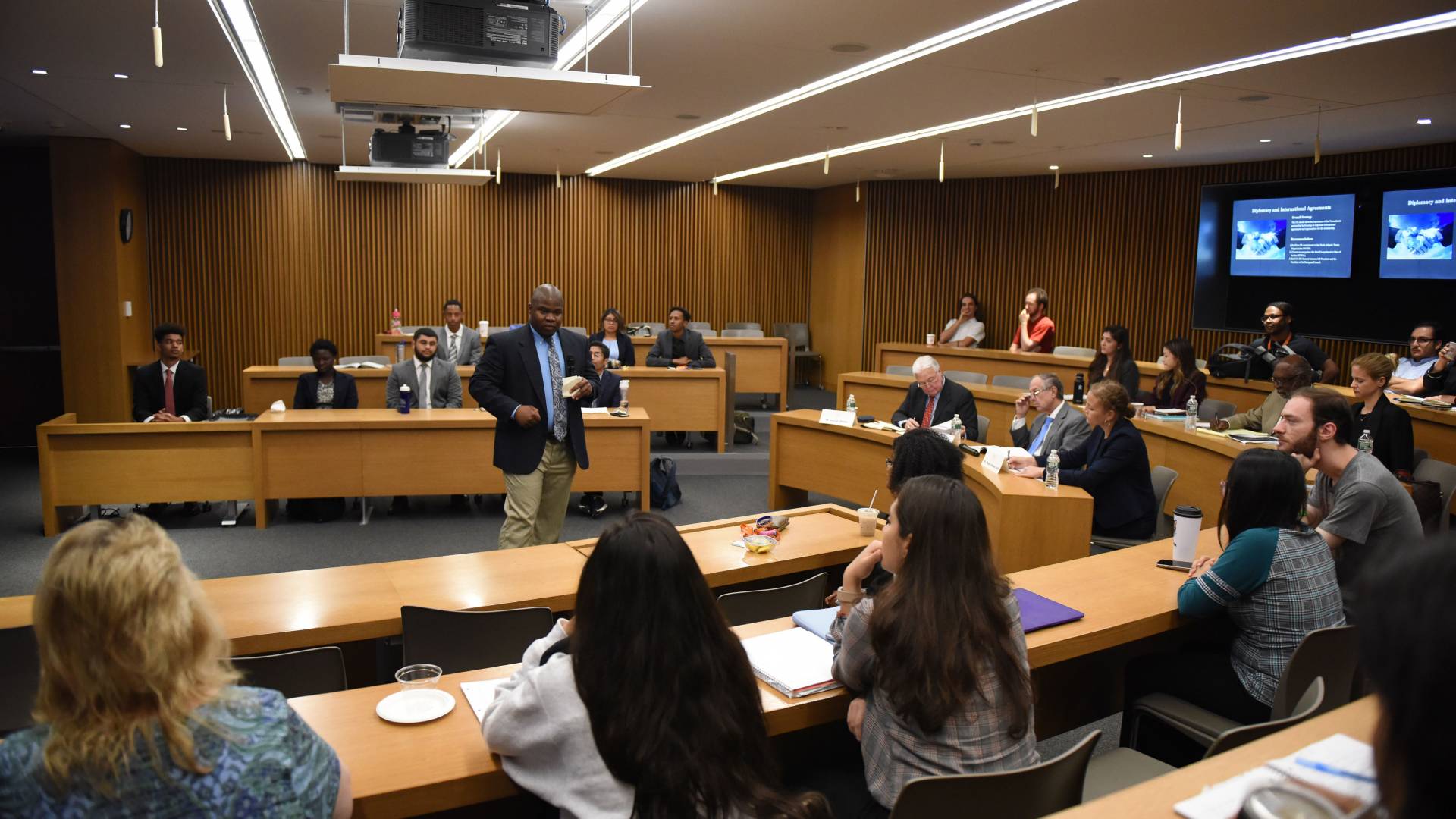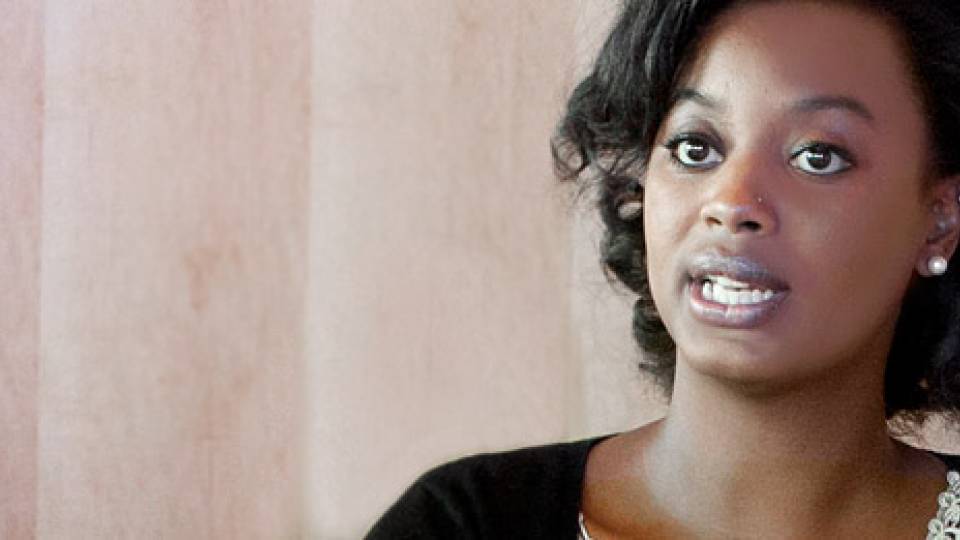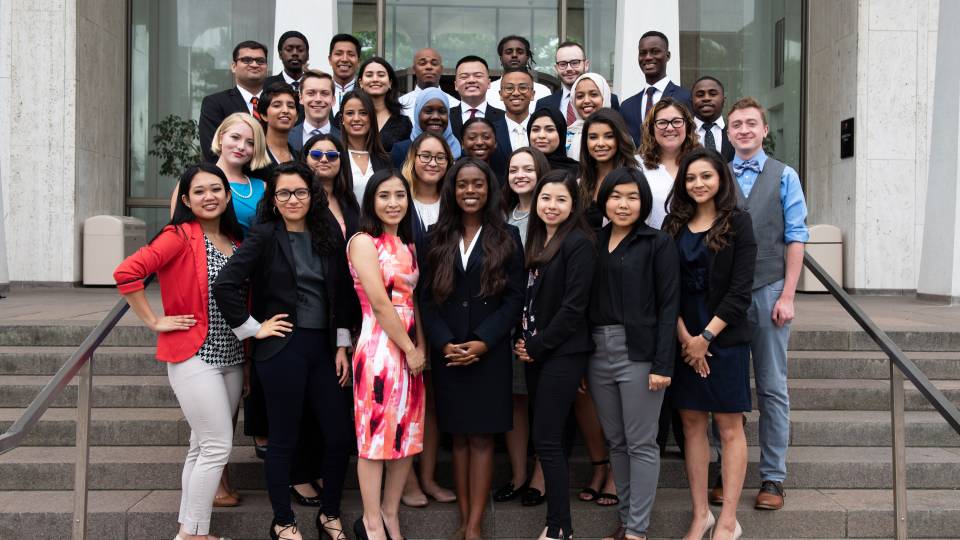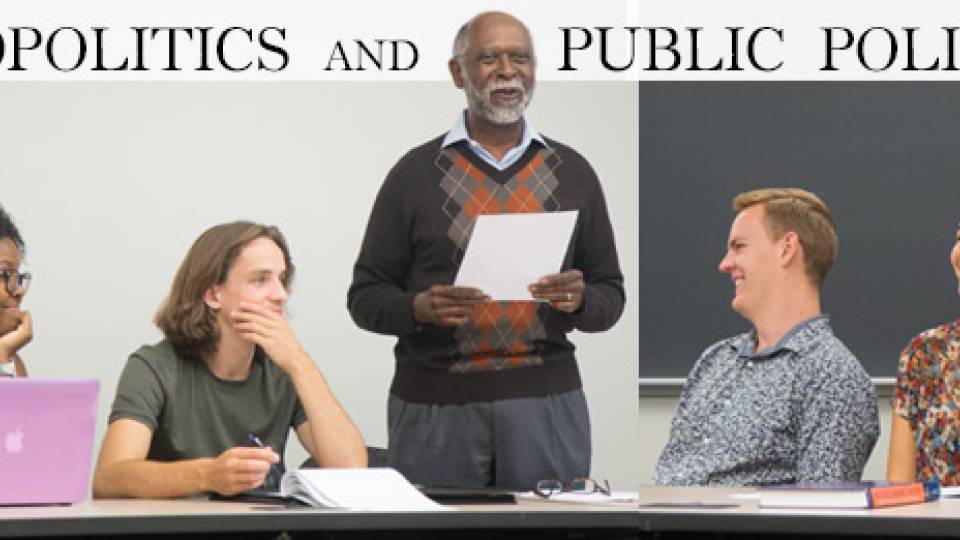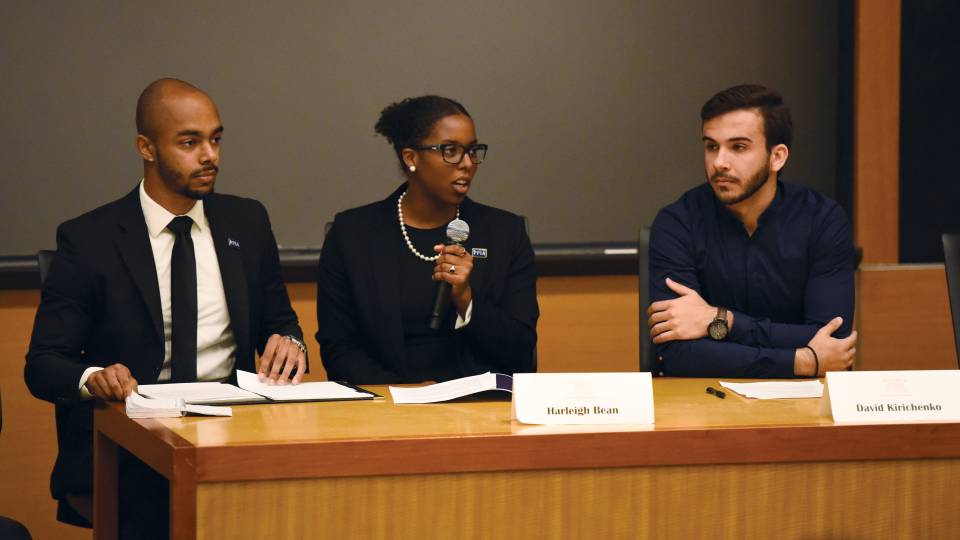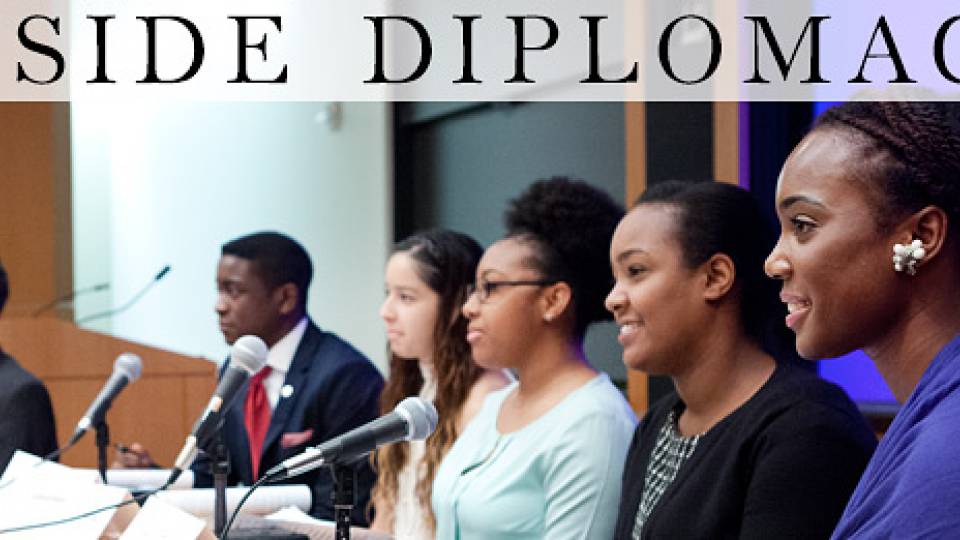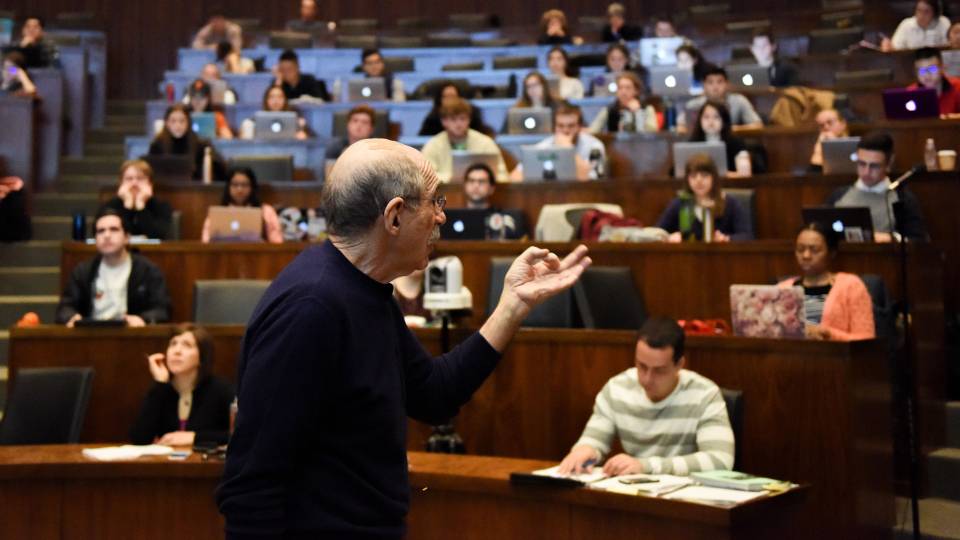The Junior Summer Institute at Princeton prepares college students from diverse backgrounds for graduate study and careers in public service. Pictured: Semaj Martin-Redd from Mississippi State University addresses the audience on a public policy issue at the Woodrow Wilson School of Public and International Affairs, which hosts the program.
Participating in a roundtable discussion, 29 college students listened as graduates of Princeton’s Woodrow Wilson School of Public and International Affairs shared advice and tips about careers in public service. The graduate program alumni emphasized the importance of being flexible with post-graduation plans, telling the students to allow their passions for public service to determine their path to success.
The roundtable was one element of the 2019 Public Policy and International Affairs (PPIA) Junior Summer Institute (JSI), held annually at Princeton and hosted by the Woodrow Wilson School since 1985. The goal of the seven-week program is to prepare students from historically underrepresented, diverse backgrounds for graduate study and careers in public policy. Through rigorous, high-level academic courses, participants experience how a Master in Public Affairs (MPA) can help them become future public service leaders. Selected through a competitive application process, students engage in a curriculum of writing, critical thinking, public speaking and quantitative reasoning skills — all of which are essential for the explanation, evaluation and development of public policy in domestic and international spheres.
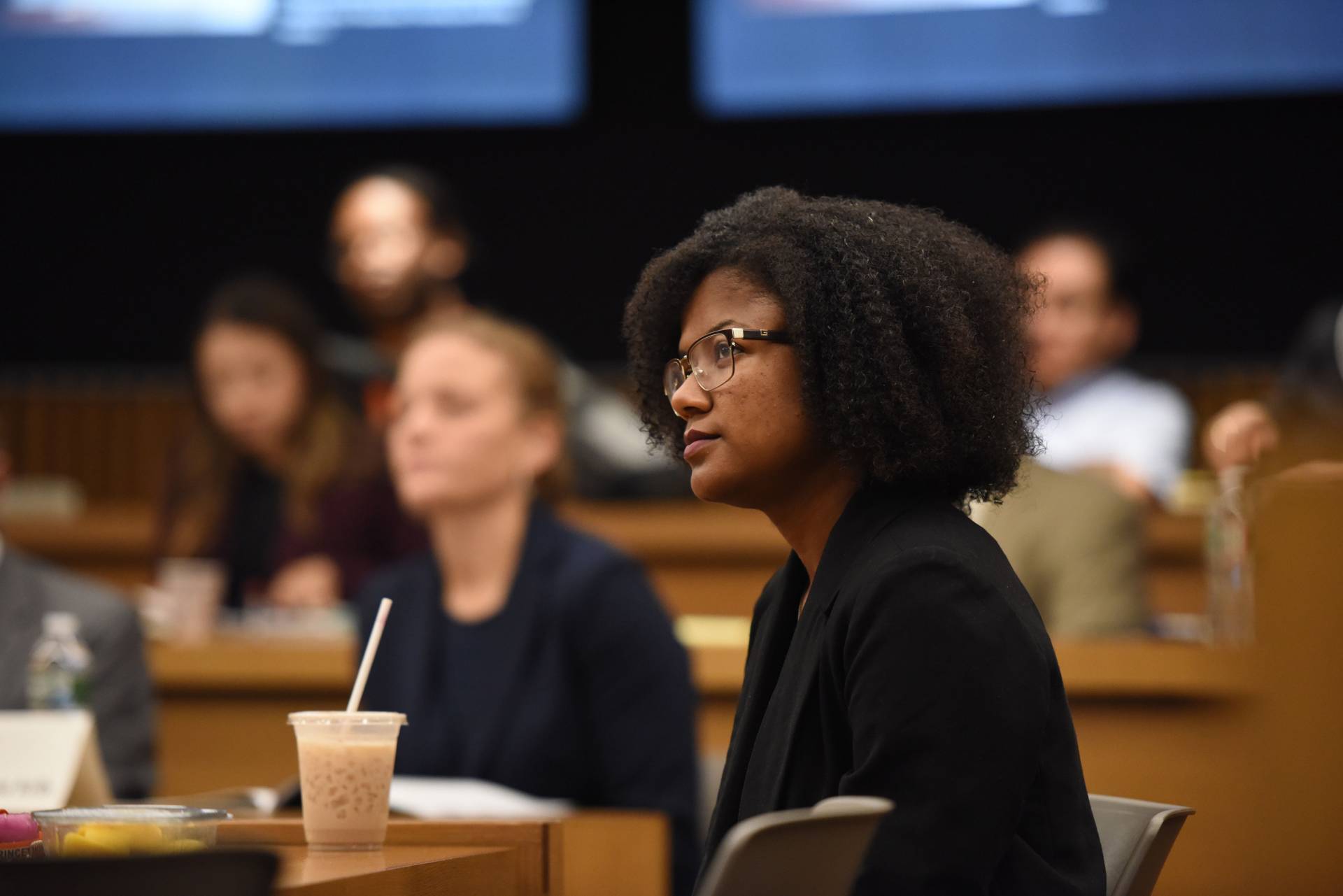
Kailyn Price from North Carolina A&T State University listens attentively during a peer presentation. Selected through a competitive application process, students engage in a curriculum of writing, critical thinking, public speaking and quantitative reasoning skills.
This year’s participants represented 28 colleges and universities across the U.S., pursuing 23 majors. They are from 17 U.S. states and six countries: Ghana, Haiti, Nepal, Rwanda, Syria and Vietnam.
Angela Chin, a senior at the University of North Carolina-Chapel Hill majoring in public policy and global studies, reflected on the roundtable discussion: “There’s no linear plan for our careers, I’ve learned that’s OK as long as you are still giving it your all. It’s more about how you respond to change, and how you move on from it, than it is about planning for it,” she said.
“The goal of this program is to expose students to new opportunities and to push them academically and socially,” said Taylor Nelson, a 2019 MPA graduate alumna and a JSI program assistant. “[W]e are providing them with another set of options in terms of what they want to do in the future, how they approach making change and how they approach policy.”
Princeton is one of five universities that offers a PPIA program, along with Carnegie Mellon University, University of California-Berkeley, University of Michigan and University of Minnesota. Faculty and staff at the Woodrow Wilson School aim to create a positive space — both in and out of the classroom — for students to build their academic skills and develop new thinking about public policy.
JSI student Semaj Martin-Redd, a senior political science major at Mississippi State University, valued the chance to develop new quantitative skills to tackle policy challenges. “I’ve always wanted to be an agent of change, but never knew how. Thanks to these courses, I now know how to explain problems and how they could be fixed.”
In addition to their core classwork, students choose one of two policy workshops — international relations or domestic policy — where they use research analysis and critical thinking to evaluate contemporary issues. This year, the domestic policy workshop focused on the social determinants of health in several states, while the international relations workshop analyzed political, economic and security issues within the transatlantic partnership between the United States and the European Union.
Martin-Redd said: “Hearing from so many people with different perspectives on a range of international issues, I now think about issues from another perspective. I have new shoes in which I am able to view people’s experiences and think about policy through that lens.”
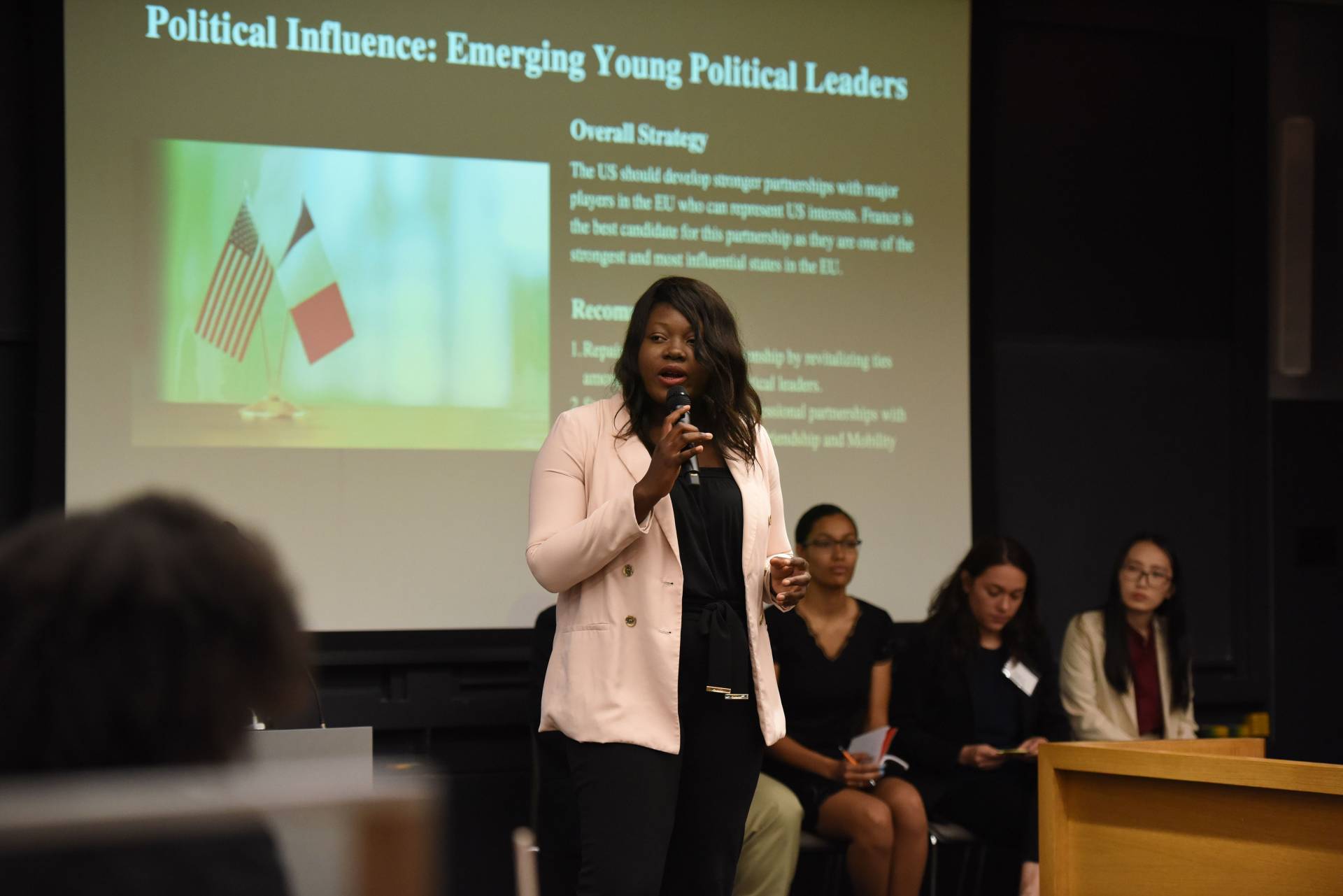
During a team presentation as part of the international policy workshop, Tessy Jacques from the University of South Florida speaks on the group’s strategies for improving U.S.-EU relations.
The students traveled to Washington, D.C., to meet with policymakers and experts working in the Congressional Budget Office, the House Committee on Ways and Means, the U.S. Department of State, and the Foreign Policy Institute of the Johns Hopkins University School of Advanced International Studies. Through briefings, presentations and discussions, they gained context on the international and domestic policy issues they were analyzing in their workshops. They also met other JSI fellows while networking with graduate students at a graduate school fair.
Traveling to D.C. with the students is an important aspect of the program, Nelson said. Exposing them to new opportunities and experiences allows the students “to see how big the world is,” she said. “It’s hard to know what you want to do in the future if you don’t know what’s out there.”
In addition to coursework and the workshops, the JSI program features a faculty and policymaker lunch series, which gives the students a chance to speak with high-level professionals at the University and gain advice from their experiences in the field. Princeton professors participating this year included Miguel Centeno, vice dean of the Woodrow Wilson School, the Musgrave Professor of Sociology and professor of international affairs; Matthew Desmond, the Maurice P. During Professor of Sociology; Amaney Jamal, the Edwards S. Sandford Professor of Politics; Cecilia Rouse, dean of the Woodrow Wilson School and the Lawrence and Shirley Katzman and Lewis and Anna Ernst Professor in the Economics of Education; Stacey Sinclair, professor of psychology and public affairs; and Fred Wherry, professor of sociology.
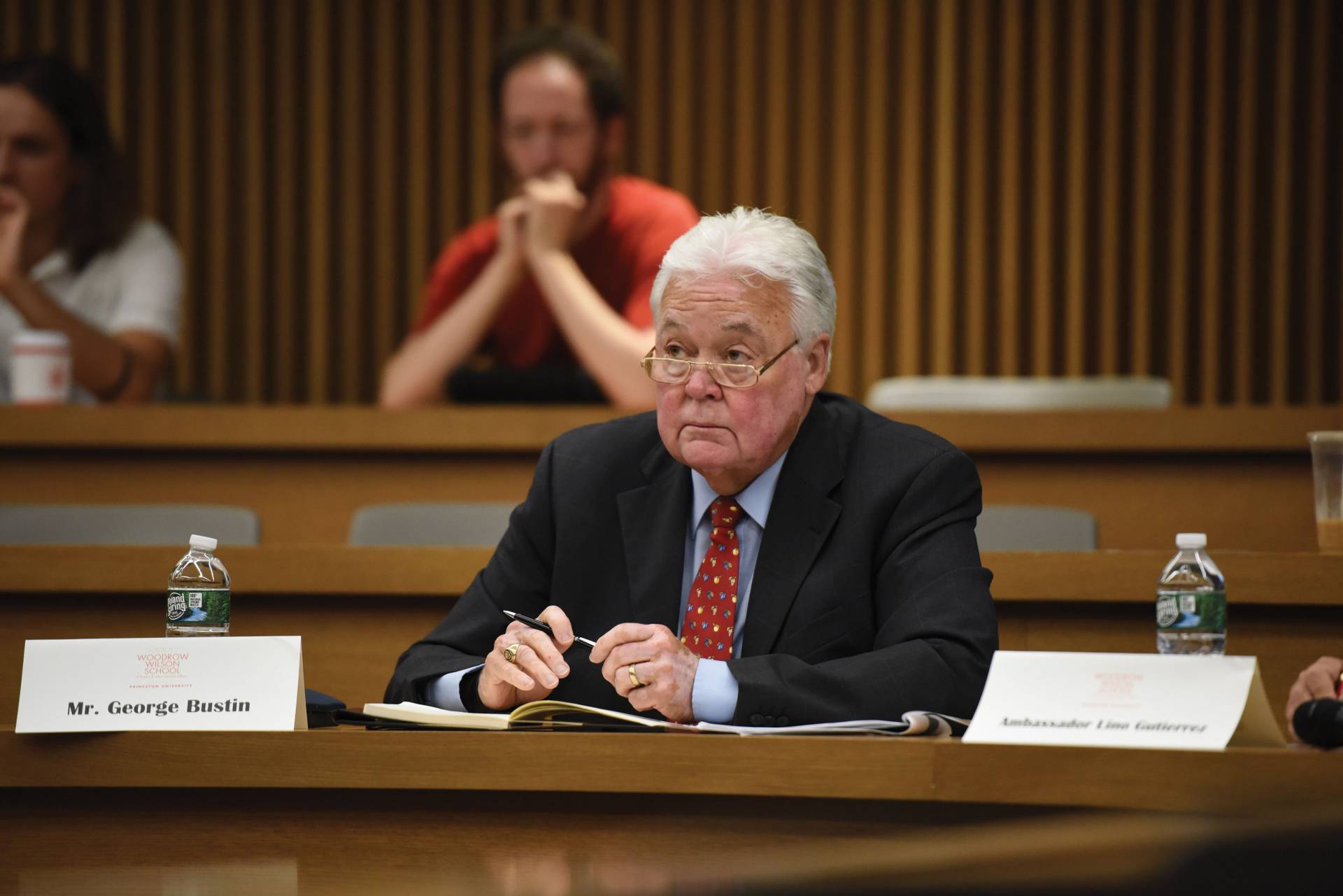
George Bustin, a 1970 Princeton alumnus, senior counsel at the international law firm of Cleary Gottlieb Steen & Hamilton, and an expert in EU law, offers feedback during the student presentations.
A new part of this year’s program was “Racial Democracy in America,” a presentation by Nyron Crawford, a visiting research scholar at the Woodrow Wilson School. Inspired by a graduate course Crawford taught last year, the presentation brought together a wide range of scholarship about race and democracy to encourage thinking about equity and fairness across public systems, in policymaking and why it matters. Crawford’s discussion with the JSI students focused on inclusion and justice within the policy arena.
To conclude the program, the students prepared final presentations based on their workshops and presented their research findings and recommendations to a panel of professionals in politics, law, policy and academics.
Chin reflected on her experience: “The JSI program has given me ownership over my educational experience. Seeing that so many people here at the Woodrow Wilson School see the potential in me, I owe it to them to try my best within my field to be able to accomplish my goals. The program has been a signal for me that I’m headed in the right direction by pushing myself to get into spaces where I’m with the best of the best in my field.”
